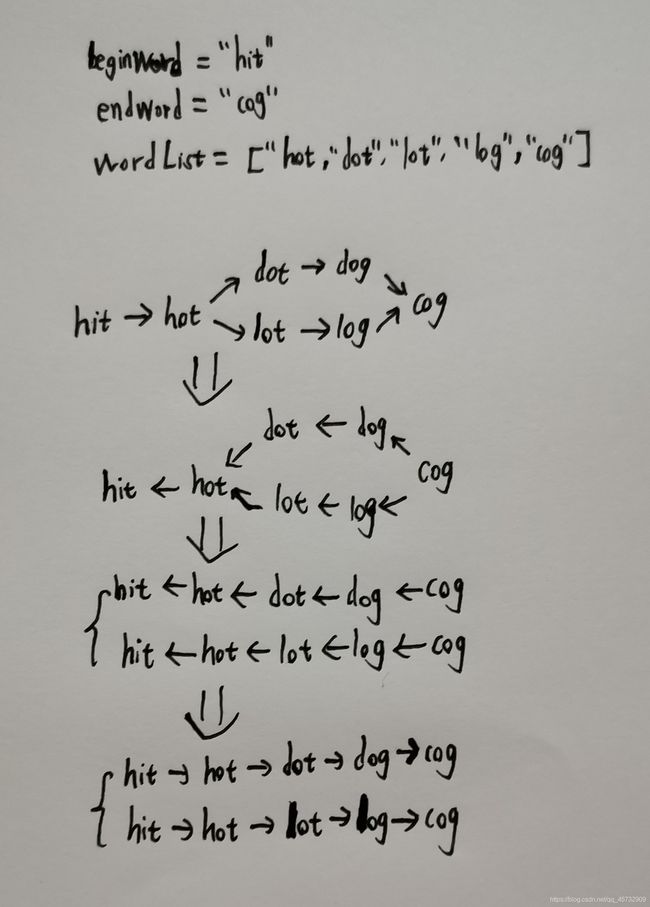- ADC(模数转换器)与DAC(数模转换器)详解:从基础到应用示例
楼台的春风
嵌入式开发STM32嵌入式c语言mcu自动驾驶嵌入式硬件stm32物联网
ADC(模数转换器)与DAC(数模转换器)详解:从基础到应用示例目录ADC(模数转换器)与DAC(数模转换器)详解:从基础到应用示例引言一、ADC(模数转换器)1.ADC的基本概念2.ADC的工作原理3.ADC的主要类型4.ADC的技术指标5.ADC的应用场景6.ADC在嵌入式系统中的使用案例二、DAC(数模转换器)1.DAC的基本概念2.DAC的工作原理3.DAC的主要类型4.DAC的技术指标5
- 内外网隔离文件传输解决方案|系统与钉钉集成+等保合规,安全提升70%
CSTechAI
钉钉安全中间件安全架构
内外网隔离文件传输解决方案|系统与钉钉集成+等保合规,安全提升70%##一、背景与痛点在内外网隔离的企业网络环境中,员工与外部协作伙伴(如钉钉用户)的文件传输面临以下挑战:1.**安全性风险**:内外网直连可能导致病毒传播、数据泄露。2.**操作繁琐**:传统方式需频繁切换网络环境,降低工作效率。3.**审计缺失**:缺乏文件传输的完整日志记录,难以追溯责任。**系统**通过智能中转架构,在保障网
- ollama的docker 使用教程
贾斯汀玛尔斯
数据湖AIDocker容器dockereureka容器
好的,下面是Ollama在Docker中的使用教程。我将详细描述如何在Docker容器中运行Ollama,包括安装、配置和常用操作。OllamaDocker使用教程Ollama可以通过Docker运行,提供了一个简洁且隔离的环境来使用AI模型。本文将引导你如何在Docker中设置和使用Ollama。目录前提条件拉取OllamaDocker镜像启动Ollama容器基本命令操作停止容器<
- 安心联车辆管理系统在汽车金融领域的应用
安心联-车辆监控管理系统
汽车金融人工智能
安心联车辆管理系统在汽车金融领域的应用主要体现在通过智能化监控与数据分析技术,提升金融风控能力、优化资产管理和降低运营风险。以下从核心功能、技术赋能和实际场景三个方面展开分析:一、核心功能适配金融场景车辆资产动态监控实时定位与电子围栏:系统基于北斗/GPS双模定位技术,可实时追踪车辆位置,并设置电子围栏限制车辆行驶区域。若车辆驶出授权范围(如贷款合同约定的使用区域),系统立即触发报警并留存轨迹证据
- DeepSeek预测25考研分数线
GIS前端嘉欣
考研前端GISwebgis
25考研分数马上要出了。目前,多所大学已经陆续给出了分数查分时间,综合往年情况来看,每年的查分时间一般集中在2月底。等待出成绩的日子,学子们的心情是万分焦急,小编用最近爆火的“活人感”十足的DeepSeek帮大家预测一下25考研的分数线。一起来看看吧~影响国家线的关键因素1)报考人数2023年考研报名人数为474万(首次下降),2024年回升至438万(官方未公布,网传数据存疑)。若2025年报考
- 信息获取、扫描与服务识别、漏洞验证、嗅探攻击、代理与隧道、metasploit渗透攻击等
Utopia.️
web安全安全网络
1.信息获取信息获取是渗透测试和安全评估的第一步,主要目的是收集目标系统的各种信息。这些信息可以帮助确定攻击面和潜在的安全漏洞。技术和工具:域名信息:使用whois查询域名注册信息。DNS查询:使用nslookup或dig获取DNS记录,包括A记录、MX记录等。网络扫描:使用nmap或Masscan扫描目标网络,收集IP地址和开放端口信息。公开信息:通过搜索引擎、社交媒体、公司网站等公开资源获取目
- 动态规划之背包问题--python版本
我是小码搬运工
#python基础动态规划背包问题python版本
动态规划之背包问题–python版本问题已知一个最大量的背包,给定一组给定固定价值和固定体积的物品,求在不超过最大值的前提下,能放入背包中的最大总价值。解题思路该问题是典型的动态规划问题,分为三种不同的类型(0-1背包问题、完全背包和多重背包问题)解题关键–状态转移表达式:B(k,C)=max(B(k−1,C),B(k−1,C−ci)+vi)B(k,C)=max(B(k-1,C),B(k-1,C-
- ArcGIS二次开发之WPF中控件的使用
ShirmyMao
ArcGIS二次开发wpfc#arcgis
WPF中ArcGIS控件的使用WPF中插入ArcGIS控件Winform控件上嵌套使用WPF控件WPF中插入ArcGIS控件在WPF中引用ArcGIS的控件需要使用WindowsFromsHost,具体用法如下:添加引用:WindowsFormsIntegration和system.windows.formWpf.xaml中后台代码中:publicAxMapControlMapControl=ne
- C语言学习记录——BC61 牛牛的二三七整除
曾浩轩
C语言学习记录学习c语言
牛牛的二三七整除_牛客题霸_牛客网(nowcoder.com)#includeintmain(){inta;//定义我们要输入的整数scanf("%d",&a);//输入整数if(a%2==0)//a%2==0说明a能被2整除{printf("2");//输出2空,因为a有可能还会被3和7整除,但输出中格式显示每个数字是间隔的}//并且要升序输出,所以先判断能否被2整除,再判断能否被3整除,最后是
- 图论篇--代码随想录算法训练营第五十七天打卡| 最小生成树问题
無量空所
leetcode算法图论数据结构c++学习
题目链接:53.寻宝(第七期模拟笔试)题目描述:在世界的某个区域,有一些分散的神秘岛屿,每个岛屿上都有一种珍稀的资源或者宝藏。国王打算在这些岛屿上建公路,方便运输。不同岛屿之间,路途距离不同,国王希望你可以规划建公路的方案,如何可以以最短的总公路距离将所有岛屿联通起来(注意:这是一个无向图)。给定一张地图,其中包括了所有的岛屿,以及它们之间的距离。以最小化公路建设长度,确保可以链接到所有岛屿。解题
- DeepSeek 赋能工业软件之全流程方案
爱吃青菜的大力水手
人工智能自动化持续部署语言模型开源
deepseek赋能工业软件之全流程方案之侧重半导体FABdeepseek在工业软件中的应用场景“deepseek”大模型在工业软件领域拥有广泛的应用场景,包括以下几个方面:智能调度:利用深度学习和优化算法,根据实时数据动态调整生产计划和资源分配。它可以综合考虑订单需求、设备状态和产能限制,智能生成最优的生产排程方案,减少等待时间和切换成本。例如在汽车制造工厂,deepseek可根据订单需求和设备
- CH340N的使用注意事项
鹿屿二向箔
单片机嵌入式硬件
使用CH340N将MCU的串口(UART)转换为USB输出是一种常见的方案,适用于需要将嵌入式设备连接到电脑的场景。以下是详细的连接方法和步骤:1.CH340N简介功能:CH340N是一款USB转串口芯片,支持USB2.0协议,可将UART信号转换为USB信号。特点:内置晶振,无需外部晶振。支持5V和3.3V电源电压。封装为SOP-8,体积小,适合紧凑设计。2.硬件连接以下是CH340N与MCU(
- 最新版AndroidStudio踩坑(新建项目无法正常运行)
沙漠蓝色披头
androidstudio
2023.7.20日雨今天花了六个小时才搞定新版AS创建app应用并可以运行,所以记录一下as版本是:AndroidStudioFlamingo|2022.2.1Patch2新建一个app应用,结果gradle一直下载不下来,提示connectrefuse,如果你配置了代理,建议设置为无代理同时要记得把.gradle/gradle.properties里面相关的代理设置给清除了,如果设置了代理的话
- 【vue】Mammoth.js的使用:将.docx转换成HTML
暴富暴富暴富啦啦啦
1024程序员节
mammoth.convertToHtml(input,options):把源文档转换为HTML文档mammoth.convertToMarkdown(input,options):把源文档转换为Markdown文档。mammoth.extractRawText(input):提取文档的原始文本。这将忽略文档中的所有格式。每个段落后跟两个换行符。npminstallelement-uimammot
- RealtimeSTT:实时语音转文本的开源神器,轻松实现高效语音处理
AI云极
【开源系列】语音识别开源
在语音技术飞速发展的时代,实时语音转文本(Speech-to-Text,简称STT)技术已逐渐成为语音助手、在线会议记录、字幕生成等应用的核心功能。今天要为大家推荐的是一款开源的实时语音转文本工具——RealtimeSTT,它功能强大且易于集成,为开发者提供了快速构建实时语音处理应用的能力。项目地址:GitHub-RealtimeSTT一、什么是RealtimeSTT?RealtimeSTT是一款
- SQL面试题练习 —— 取出累计值与1000差值最小的记录
夏木夕
SQLsql面试数据库
题目来源:滴滴目录1题目2建表语句3题解1题目已知有表t_cost_detail包含id和money两列,id为自增,请累加计算money值,并求出累加值与1000差值最小的记录。+-----+--------+|id|money|+-----+--------+|1|200||2|300||3|200||4|100||5|150||6|80||7|100||8|200|+-----+------
- 单细胞轨迹分析-monocle包的使用
探序基因
r语言
探序基因肿瘤研究院整理安装:monocle源码下载:https://www.bioconductor.org/packages/release/bioc/html/monocle.htmlR版本,4.2.0BiocManager::install("monocle")不过在安装过程中还是报错了:Warning:无法在https://bioconductor.org/packages/3.15/bi
- Mybatis判断问题:深入解析与实战案例
DTcode7
sql数据库相关数据库mysqlSQL数据库开发sql
Mybatis判断问题:深入解析与实战案例基础概念与作用说明``标签``,``,````示例一:基本的``标签使用说明示例二:``,``,``的使用说明示例三:使用``标签简化条件语句说明实际工作中的使用技巧自行拓展内容在现代企业级应用开发中,MyBatis作为一款优秀的持久层框架,以其灵活的SQL映射机制和强大的动态SQL功能,深受广大开发者的喜爱。然而,在使用过程中,如何准确地进行条件判断,特
- SQL面试题集:累计值与1000差值最小的记录
数星星的阿波罗
Sql能力通关sql算法数据库数据仓库大数据数据分析面试
一、题目描述司机累计收入首次接近目标值的订单定位,滴滴平台计划优化司机奖励策略的触发机制,需精准识别司机在接单过程中累计收入首次接近特定目标值1000元的订单节点。该分析用于动态调整奖励发放规则,提升司机接单积极性。样例数据假设表t_sales结构如下:driver_idorder_idincomeorder_time11012002025-02-1909:00:0011023002025-02-
- 关于个人财务系统的javaweb小项目
竹木有心
tomcatjava
个人财务管理系统-项目计划书1.项目背景与目的随着现代社会的进步与人们收入水平的提高,个人财务的管理变得越来越重要。如何有效地记录、管理、分析个人的收支状况,成为了很多人关注的焦点。本项目旨在设计并实现一个基于JavaWeb技术的个人财务管理系统,通过该系统,用户可以轻松管理自己的收入与支出,查看财务统计分析,帮助用户进行财务规划与控制。本系统适用于大三学生的课程设计要求,涉及JavaWeb技术、
- 如何订阅&q;/扫描&q;主题、修改消息并发布到新主题?
潮易
python开发语言
如何订阅&q;/扫描&q;主题、修改消息并发布到新主题?这个问题涉及到Python编程中的MQTT(MessageQueuingTelemetryTransport)库的使用,该库允许我们创建客户端订阅和发布消息到MQTT服务器。以下是一个简单的步骤:1.安装MQTT库:可以使用pip安装`paho-mqtt`库。```pythonpipinstallpaho-mqtt```2.创建一个MQTT客
- C++ C_style string overview and basic Input funcitons
狗头鹰
C++notesc++开发语言
writeinadvance最近在做题,遇到一个简单的将console的输入输出到文件中的简单题目,没有写出来。悔恨当初没有踏实地总结string相关的I/O以及与文件的操作。这篇文章旨在记录基础的字符I/O,简单常用的文件I/O操作函数。当然,你会说C++已经有一个stringclass,我们只需要#include就能够使用它带来的便捷性及强大的功能,无需烦恼细节。但知道底层的具体情况在语言的学
- C++(23):lambda可以省略()
风静如云
C/C++c++
C++越来越多的使用了lambda,C++23也进一步的放宽了对lambda的限制,这一次,如果lambda没有参数列表,那么可以直接省略掉():#includeusingnamespacestd;voidfunc(){autof=[]{cout<<"inf"<<endl;};f();}intmain(){func();return0;}允许程序输出:inf
- 大模型如何改变教育?典型应用场景的探究与展望!
AGI大模型学习
大模型应用人工智能AI产品经理llama大模型AI大模型教程
目前,大模型在教育领域的应用主要体现在个性化学习助手、智能问答系统、内容生成与创作辅助、智能写作评估、跨语言学习支持、数学解题辅助等几个方面。大模型技术在教育领域凭借卓越的数据处理能力和深度学习技术,极大推动了教育质量的提升与教育公平的实现。分级分类的教育数据助力大模型发展在构建与优化大模型的过程中,教育数据能够帮助我们更精准地理解教育现象,更有质量地辅助教学。教育数据涵盖广泛,包括但不限于学生的
- A、B、C三级机房数据中心是怎么划分的?
wayuncn
网络服务器云计算运维
依据国家GB50174《电子信息系统机房设计规范》规定,数据中心设计时迎根据机房的使用性质,管理要求及其在经济社会中的重要性确认机房级别,划分为A、B、C三级。1.A级:符合以下情况之一的数据中心应为A级(1)电子信息系统运行中断将造成重大的经济损失;(2)电子信息系统运行中断将造成公共场所秩序严重混乱。A级为容错型,A级电子信息系统机房内的场地设备应按容错系统配置,在电子信息系统运行期间,场地设
- 洞察客户喜好,精准培育客户
程序员机器学习
在当今竞争激烈的市场环境中,客户关系管理(CRM)系统已成为企业获取竞争优势的关键工具之一。通过深入洞察客户喜好,企业能够更精准地培育客户关系,从而提高客户满意度和忠诚度。以下是CRM系统在洞察客户喜好和精准培育客户关系方面的几个关键作用:收集和整合客户数据CRM系统能够从多个渠道收集客户的详细信息,包括客户的基本资料、购买历史、互动记录、反馈意见等。这些数据为企业提供了全面的客户画像,使企业能够
- python实现word文档合并 v2.0
task138
python自动化python自动化运维开发
目录前言要求运行效果脚本下载链接前言之前发表了一个小工具,python用于合并word文档以完成特定的工作任务,现在领导给出了新需求,适当的调整了一下word文档的合并情况。同时,各位同事反馈说,环境部署太难了,脚本的使用成本比较高,难度大,所以我这次把脚本打包成一个EXE可执行文件,直接双击即可使用。要求由于脚本的具体逻辑发生了变化,因此,exe文件的同级目录下,一定要存在一个txt文件,否则无
- 如何备战软考网络工程师?
互联网之路.
知识点网络
互联网各领域资料分享专区(不定期更新):Sheet前言软考网络工程师属于中级资格考试,通过这个考试来获得职称或者提升自己的专业技能。软考网络工程师的考试内容和结构。考试分为上午的综合知识和下午的案例分析,可能涉及计算机网络的基础知识、网络设备配置、网络安全、网络管理等方面。实践操作对下午的案例题很重要,可能需要配置模拟器来练习。但一般没有实际设备,所以模拟器是必要的。同时,真题的重要性不可忽视,需
- html+css+javascript实用详解,HTML+CSS+JavaScript 课程标准
vvv666s
②学会运用HTML语言中的标记设置颜色、文本格式和列表;熟练掌握颜色值的配置和背景图案的设置方法,熟练掌握字符、链接颜色的设置方法;③掌握在网页中添加CSS、嵌入图像、声音、多媒体信息的方法;④熟练掌握表格的使用方法,学会利用表格设布局网页;掌握框架制作网页的方法,会使用框架设计网页;掌握制作表单的方法,会利用表单建立交互式页面;⑤掌握JavaScript语言的语法;⑥掌握在HTML语言代码中嵌入
- jQuery UI CSS 框架 API
lly202406
开发语言
jQueryUICSS框架API概述jQueryUI是一个基于jQuery的用户界面和交互库,它提供了一套丰富的交互组件和视觉效果,旨在帮助开发者快速构建具有吸引力和互动性的网页应用。jQueryUICSS框架API是jQueryUI的一部分,它允许开发者通过简单的CSS类来控制UI组件的样式和外观。本文将详细介绍jQueryUICSS框架API的使用方法、常用类和功能,帮助开发者更好地利用这一工
- 算法 单链的创建与删除
换个号韩国红果果
c算法
先创建结构体
struct student {
int data;
//int tag;//标记这是第几个
struct student *next;
};
// addone 用于将一个数插入已从小到大排好序的链中
struct student *addone(struct student *h,int x){
if(h==NULL) //??????
- 《大型网站系统与Java中间件实践》第2章读后感
白糖_
java中间件
断断续续花了两天时间试读了《大型网站系统与Java中间件实践》的第2章,这章总述了从一个小型单机构建的网站发展到大型网站的演化过程---整个过程会遇到很多困难,但每一个屏障都会有解决方案,最终就是依靠这些个解决方案汇聚到一起组成了一个健壮稳定高效的大型系统。
看完整章内容,
- zeus持久层spring事务单元测试
deng520159
javaDAOspringjdbc
今天把zeus事务单元测试放出来,让大家指出他的毛病,
1.ZeusTransactionTest.java 单元测试
package com.dengliang.zeus.webdemo.test;
import java.util.ArrayList;
import java.util.List;
import org.junit.Test;
import
- Rss 订阅 开发
周凡杨
htmlxml订阅rss规范
RSS是 Really Simple Syndication的缩写(对rss2.0而言,是这三个词的缩写,对rss1.0而言则是RDF Site Summary的缩写,1.0与2.0走的是两个体系)。
RSS
- 分页查询实现
g21121
分页查询
在查询列表时我们常常会用到分页,分页的好处就是减少数据交换,每次查询一定数量减少数据库压力等等。
按实现形式分前台分页和服务器分页:
前台分页就是一次查询出所有记录,在页面中用js进行虚拟分页,这种形式在数据量较小时优势比较明显,一次加载就不必再访问服务器了,但当数据量较大时会对页面造成压力,传输速度也会大幅下降。
服务器分页就是每次请求相同数量记录,按一定规则排序,每次取一定序号直接的数据
- spring jms异步消息处理
510888780
jms
spring JMS对于异步消息处理基本上只需配置下就能进行高效的处理。其核心就是消息侦听器容器,常用的类就是DefaultMessageListenerContainer。该容器可配置侦听器的并发数量,以及配合MessageListenerAdapter使用消息驱动POJO进行消息处理。且消息驱动POJO是放入TaskExecutor中进行处理,进一步提高性能,减少侦听器的阻塞。具体配置如下:
- highCharts柱状图
布衣凌宇
hightCharts柱图
第一步:导入 exporting.js,grid.js,highcharts.js;第二步:写controller
@Controller@RequestMapping(value="${adminPath}/statistick")public class StatistickController { private UserServi
- 我的spring学习笔记2-IoC(反向控制 依赖注入)
aijuans
springmvcSpring 教程spring3 教程Spring 入门
IoC(反向控制 依赖注入)这是Spring提出来了,这也是Spring一大特色。这里我不用多说,我们看Spring教程就可以了解。当然我们不用Spring也可以用IoC,下面我将介绍不用Spring的IoC。
IoC不是框架,她是java的技术,如今大多数轻量级的容器都会用到IoC技术。这里我就用一个例子来说明:
如:程序中有 Mysql.calss 、Oracle.class 、SqlSe
- TLS java简单实现
antlove
javasslkeystoretlssecure
1. SSLServer.java
package ssl;
import java.io.FileInputStream;
import java.io.InputStream;
import java.net.ServerSocket;
import java.net.Socket;
import java.security.KeyStore;
import
- Zip解压压缩文件
百合不是茶
Zip格式解压Zip流的使用文件解压
ZIP文件的解压缩实质上就是从输入流中读取数据。Java.util.zip包提供了类ZipInputStream来读取ZIP文件,下面的代码段创建了一个输入流来读取ZIP格式的文件;
ZipInputStream in = new ZipInputStream(new FileInputStream(zipFileName));
&n
- underscore.js 学习(一)
bijian1013
JavaScriptunderscore
工作中需要用到underscore.js,发现这是一个包括了很多基本功能函数的js库,里面有很多实用的函数。而且它没有扩展 javascript的原生对象。主要涉及对Collection、Object、Array、Function的操作。 学
- java jvm常用命令工具——jstatd命令(Java Statistics Monitoring Daemon)
bijian1013
javajvmjstatd
1.介绍
jstatd是一个基于RMI(Remove Method Invocation)的服务程序,它用于监控基于HotSpot的JVM中资源的创建及销毁,并且提供了一个远程接口允许远程的监控工具连接到本地的JVM执行命令。
jstatd是基于RMI的,所以在运行jstatd的服务
- 【Spring框架三】Spring常用注解之Transactional
bit1129
transactional
Spring可以通过注解@Transactional来为业务逻辑层的方法(调用DAO完成持久化动作)添加事务能力,如下是@Transactional注解的定义:
/*
* Copyright 2002-2010 the original author or authors.
*
* Licensed under the Apache License, Version
- 我(程序员)的前进方向
bitray
程序员
作为一个普通的程序员,我一直游走在java语言中,java也确实让我有了很多的体会.不过随着学习的深入,java语言的新技术产生的越来越多,从最初期的javase,我逐渐开始转变到ssh,ssi,这种主流的码农,.过了几天为了解决新问题,webservice的大旗也被我祭出来了,又过了些日子jms架构的activemq也开始必须学习了.再后来开始了一系列技术学习,osgi,restful.....
- nginx lua开发经验总结
ronin47
使用nginx lua已经两三个月了,项目接开发完毕了,这几天准备上线并且跟高德地图对接。回顾下来lua在项目中占得必中还是比较大的,跟PHP的占比差不多持平了,因此在开发中遇到一些问题备忘一下 1:content_by_lua中代码容量有限制,一般不要写太多代码,正常编写代码一般在100行左右(具体容量没有细心测哈哈,在4kb左右),如果超出了则重启nginx的时候会报 too long pa
- java-66-用递归颠倒一个栈。例如输入栈{1,2,3,4,5},1在栈顶。颠倒之后的栈为{5,4,3,2,1},5处在栈顶
bylijinnan
java
import java.util.Stack;
public class ReverseStackRecursive {
/**
* Q 66.颠倒栈。
* 题目:用递归颠倒一个栈。例如输入栈{1,2,3,4,5},1在栈顶。
* 颠倒之后的栈为{5,4,3,2,1},5处在栈顶。
*1. Pop the top element
*2. Revers
- 正确理解Linux内存占用过高的问题
cfyme
linux
Linux开机后,使用top命令查看,4G物理内存发现已使用的多大3.2G,占用率高达80%以上:
Mem: 3889836k total, 3341868k used, 547968k free, 286044k buffers
Swap: 6127608k total,&nb
- [JWFD开源工作流]当前流程引擎设计的一个急需解决的问题
comsci
工作流
当我们的流程引擎进入IRC阶段的时候,当循环反馈模型出现之后,每次循环都会导致一大堆节点内存数据残留在系统内存中,循环的次数越多,这些残留数据将导致系统内存溢出,并使得引擎崩溃。。。。。。
而解决办法就是利用汇编语言或者其它系统编程语言,在引擎运行时,把这些残留数据清除掉。
- 自定义类的equals函数
dai_lm
equals
仅作笔记使用
public class VectorQueue {
private final Vector<VectorItem> queue;
private class VectorItem {
private final Object item;
private final int quantity;
public VectorI
- Linux下安装R语言
datageek
R语言 linux
命令如下:sudo gedit /etc/apt/sources.list1、deb http://mirrors.ustc.edu.cn/CRAN/bin/linux/ubuntu/ precise/ 2、deb http://dk.archive.ubuntu.com/ubuntu hardy universesudo apt-key adv --keyserver ke
- 如何修改mysql 并发数(连接数)最大值
dcj3sjt126com
mysql
MySQL的连接数最大值跟MySQL没关系,主要看系统和业务逻辑了
方法一:进入MYSQL安装目录 打开MYSQL配置文件 my.ini 或 my.cnf查找 max_connections=100 修改为 max_connections=1000 服务里重起MYSQL即可
方法二:MySQL的最大连接数默认是100客户端登录:mysql -uusername -ppass
- 单一功能原则
dcj3sjt126com
面向对象的程序设计软件设计编程原则
单一功能原则[
编辑]
SOLID 原则
单一功能原则
开闭原则
Liskov代换原则
接口隔离原则
依赖反转原则
查
论
编
在面向对象编程领域中,单一功能原则(Single responsibility principle)规定每个类都应该有
- POJO、VO和JavaBean区别和联系
fanmingxing
VOPOJOjavabean
POJO和JavaBean是我们常见的两个关键字,一般容易混淆,POJO全称是Plain Ordinary Java Object / Plain Old Java Object,中文可以翻译成:普通Java类,具有一部分getter/setter方法的那种类就可以称作POJO,但是JavaBean则比POJO复杂很多,JavaBean是一种组件技术,就好像你做了一个扳子,而这个扳子会在很多地方被
- SpringSecurity3.X--LDAP:AD配置
hanqunfeng
SpringSecurity
前面介绍过基于本地数据库验证的方式,参考http://hanqunfeng.iteye.com/blog/1155226,这里说一下如何修改为使用AD进行身份验证【只对用户名和密码进行验证,权限依旧存储在本地数据库中】。
将配置文件中的如下部分删除:
<!-- 认证管理器,使用自定义的UserDetailsService,并对密码采用md5加密-->
- mac mysql 修改密码
IXHONG
mysql
$ sudo /usr/local/mysql/bin/mysqld_safe –user=root & //启动MySQL(也可以通过偏好设置面板来启动)$ sudo /usr/local/mysql/bin/mysqladmin -uroot password yourpassword //设置MySQL密码(注意,这是第一次MySQL密码为空的时候的设置命令,如果是修改密码,还需在-
- 设计模式--抽象工厂模式
kerryg
设计模式
抽象工厂模式:
工厂模式有一个问题就是,类的创建依赖于工厂类,也就是说,如果想要拓展程序,必须对工厂类进行修改,这违背了闭包原则。我们采用抽象工厂模式,创建多个工厂类,这样一旦需要增加新的功能,直接增加新的工厂类就可以了,不需要修改之前的代码。
总结:这个模式的好处就是,如果想增加一个功能,就需要做一个实现类,
- 评"高中女生军训期跳楼”
nannan408
首先,先抛出我的观点,各位看官少点砖头。那就是,中国的差异化教育必须做起来。
孔圣人有云:有教无类。不同类型的人,都应该有对应的教育方法。目前中国的一体化教育,不知道已经扼杀了多少创造性人才。我们出不了爱迪生,出不了爱因斯坦,很大原因,是我们的培养思路错了,我们是第一要“顺从”。如果不顺从,我们的学校,就会用各种方法,罚站,罚写作业,各种罚。军
- scala如何读取和写入文件内容?
qindongliang1922
javajvmscala
直接看如下代码:
package file
import java.io.RandomAccessFile
import java.nio.charset.Charset
import scala.io.Source
import scala.reflect.io.{File, Path}
/**
* Created by qindongliang on 2015/
- C语言算法之百元买百鸡
qiufeihu
c算法
中国古代数学家张丘建在他的《算经》中提出了一个著名的“百钱买百鸡问题”,鸡翁一,值钱五,鸡母一,值钱三,鸡雏三,值钱一,百钱买百鸡,问翁,母,雏各几何?
代码如下:
#include <stdio.h>
int main()
{
int cock,hen,chick; /*定义变量为基本整型*/
for(coc
- Hadoop集群安全性:Hadoop中Namenode单点故障的解决方案及详细介绍AvatarNode
wyz2009107220
NameNode
正如大家所知,NameNode在Hadoop系统中存在单点故障问题,这个对于标榜高可用性的Hadoop来说一直是个软肋。本文讨论一下为了解决这个问题而存在的几个solution。
1. Secondary NameNode
原理:Secondary NN会定期的从NN中读取editlog,与自己存储的Image进行合并形成新的metadata image
优点:Hadoop较早的版本都自带,

